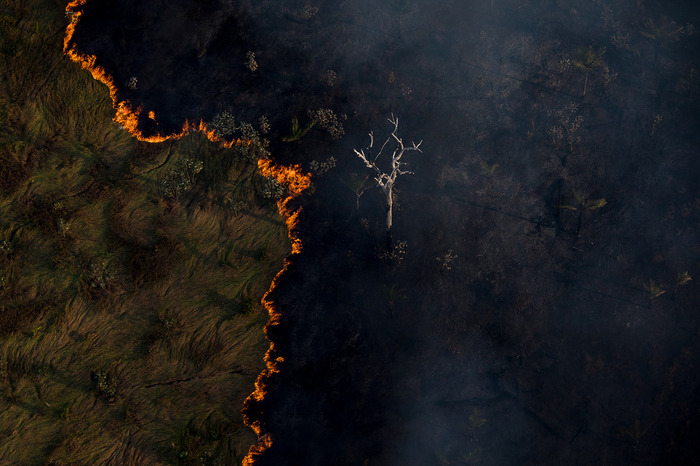Investigative research traced that 39 banks provided funding to export-oriented companies whose activities destroyed 2.3 million hectares of forest and agricultural land
Climate finance is expected to be the main point of focus at the upcoming COP29 in Baku, Azerbaijan. This funding will flow from developed, rich nations to developing countries.
But a new study found banks from rich nations have been lending billions of dollars to multinational companies whose commercial activities have led to degradation and deforestation in biodiversity hotspots in the Global South, according to a new study titled ‘Financial system interactions with ecosystem tipping points’.
Some of the offending banks are Citigroup Inc, Bank of America, JPMorgan Chase, China Investment Corp, Barclays, BNP Paribas, Rabobank, HSBC and Mitsubishi UFJ Financial Group.
Carried out by UCL Institute for Innovation and Public Purpose (IIPP) and the University of Exeter’s Global Systems Institute (GSI), the study found that top banks from the USA, UK, France, Japan, and (the only exception) China, are funding companies linked to irreversible damage in two of the world’s most vital ecosystems — the Brazilian Amazon and the Indonesian peatlands.
Rampant ecological destruction
The connection of banks with activities that cause ecological damage is not new. The financial system of bank syndication continues to fund the expansion of fossil fuel companies.
This particular study identified 39 multinational companies that are responsible for deforestation and degradation in both Brazil and Indonesia. It is mostly driven by the export-oriented production of soy, beef, palm oil and wood pulp.
The potential deforestation in the Amazon is expected to be spread over 300,000 hectares — an area twice the size of the European nation of Luxembourg. In Indonesia, two million hectares of agricultural peatlands, or the size of Slovenia, will be degraded, according to the study.
This hyper-consumer-driven production could potentially not only collapse both the critical, pristine ecosystems, but also release around 200 gigatonnes of naturally stored carbon, found the study.
This would spell disaster for the climate crisis. Such production-related activities have been fuelling the man-made fires that have been destroying the Amazon for several years now. Already close to 20% of the rainforest has been lost, and it’s just 5% shy from its tipping point — after which it will begin transforming from a lush rainforest to a grassy savannah, found a report.
The study found that these banks have provided a combined funding of more than $500 billion dollars between 2014-2023. The amount is five times more than what the Global North has committed to provide as climate finance, and nearly eight times more than the $661 million pledged in the Loss and Damage fund.
Need for regulation
“The European Union is implementing supply chain regulations to reduce imported deforestation impacts, yet it is not regulating European financial flows that are linked to impacts on nature outside the EU. This misalignment needs rethinking,” said Lydia Marsden of UCL IIPP, the lead author of the report.
The paper outlines how financial institutions, especially banks, need to be regulated in terms of having deforestation-free supply chains. It also suggests that economic losses resulting from deforestation or destruction of nature should be accounted for inside the financial system. And governments should be spearheading these efforts.
These findings are critical just ahead of the UN Biodiversity COP16 meeting in October-November 2024.
“These financial flows ultimately need to be tackled as part of international environmental commitments under the Paris Agreement and the Kunming-Montreal Global Biodiversity Framework. However, financial sector regulation shouldn’t be seen as the only solution,” said Professor Josh Ryan-Collins of UCL IIPP.
About The Author
You may also like
The G20 Has Outrun COP on Climate Finance
India needs targeted public finance to scale green steel production
India Pushes for Critical Minerals Circularity and Collective Action on Climate at G20
COP30 ends in chaos and compromise
India commits to revised NDC, shifts pressure back to rich nations to deliver on climate finance at COP30

